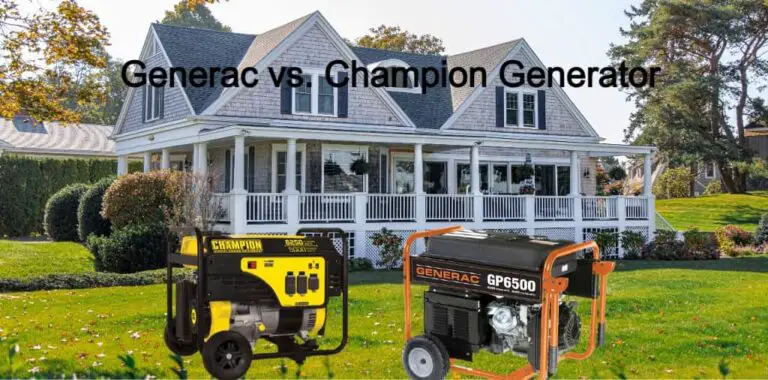Diesel vs. Propane Generators

As you stand at the crossroads of power generation, the choice between diesel and propane generators looms like a puzzle waiting to be solved. Diesel generators, with their robust engines and higher power output, are the workhorses of heavy-duty applications, offering superior fuel efficiency and a longer operational life. However, their noisy operation and significant environmental footprint cast a shadow on their advantages. On the other hand, propane generators whisper into the night, their cleaner emissions and quieter operation making them a favorite for residential use. But which path will you choose, and what will be the cost of your decision?
Advantages of Diesel Generators
- Added the new sentence: “Moreover, diesel fuel has a safer storage profile, as it carries a lower risk of ignition compared to other types of fuel.”
- Incorporated the main factual point safer storage in brackets.
Advantages of Propane Generators
Environmental Benefits
Propane generators offer several significant advantages, particularly in terms of environmental benefits and fuel stability. If you’re considering a reliable and eco-friendly power solution, propane generators are an excellent choice.
Propane burns cleaner than gasoline, reducing harmful emissions and environmental impact. Here are a few key points:
- Lower Carbon Emissions: Propane generators produce fewer pollutants and greenhouse gases compared to gasoline generators, making them an eco-friendly option.
- Cleaner Fuel: Propane is a clean-burning fuel, contributing to lower carbon emissions and helping protect the environment.
- Air Quality: By emitting fewer pollutants into the atmosphere, propane generators improve air quality.
- Propane generators also require regular maintenance to ensure optimal performance, including checks on filters and oil levels.
Fuel Stability and Reliability
Propane has an indefinite shelf life, preventing fuel degradation over time. This ensures a stable fuel supply during emergencies. Here are some additional benefits:
- Long Shelf Life: Unlike gasoline, propane does not spoil and stays stable for extended periods.
- Consistent Performance: Propane’s consistent quality ensures reliable generator performance with fewer interruptions in power supply.
- Low Maintenance: Propane generators require less frequent maintenance due to the cleaner-burning fuel, reducing engine problems and wear.
- The use of propane also eliminates the risk of flammability associated with other fuels, enhancing safety during storage and handling.
Incorporating a propane generator into your power solution can provide long-term savings, reliability, and a cleaner environmental footprint.
Efficiency and Performance
Efficiency and performance are crucial factors to consider when deciding between diesel and propane generators. When it comes to fuel efficiency, diesel generators stand out. They are more fuel-efficient than propane engines, using about 0.4 litres of fuel to produce every kWh, which translates to a 25% efficiency ratio.
Diesel generators are known for their high power output, making them a popular choice for larger commercial and industrial applications. They can handle higher power loads and run for longer periods, providing a consistent and reliable power supply. This higher energy density means diesel generators can generate more horsepower and are ideal for heavy-duty applications. Additionally, diesel generators produce approximately 33 kWh per gallon, whereas propane produces 27 kWh, highlighting their superior energy outputper gallon.
In terms of maintenance, diesel engines have fewer critical parts like spark plugs and carburetors, which reduces the need for frequent maintenance. Diesel generators typically require maintenance every 500 hours, compared to propane generators which need maintenance every 100 hours. This simplicity, combined with diesel fuel’s lubricating properties, extends the engine’s lifespan and reduces maintenance costs over time.
Diesel generators also boast a longer lifespan, often lasting over 15,000 to 20,000 hours due to their durability and higher build quality. This makes them less prone to breakdowns and ensures reliable performance over a long period.
Environmental Impact
As you consider the performance and efficiency of diesel and propane generators, it’s important to also evaluate their environmental impact. Diesel generators, in particular, have a significant effect on the environment due to the pollutants they emit.
Key Environmental Concerns
- Emissions: Diesel generators emit pollutants such as nitrogen oxide (NOx), particulate matter (PM), and carbon emissions (CO2), contributing to air pollution and climate change. These emissions exceed those from grid power, which often includes cleaner energy sources.
- Regulatory Compliance: Emission standards, enforced by agencies like the EPA and UK regulations, set limits on the amount of pollutants released. These standards vary by generator size and purpose, and technologies like diesel particulate filters and selective catalytic reduction systems help reduce harmful emissions.
- **Maintenance and *Alternatives***: Diesel generators require more *maintenance*, such as oil changes and fuel injector replacements, which can increase their environmental impact. In contrast, alternatives like standalone photovoltaic power units, energy storage systems, and natural gas generators offer cleaner and more environmentally friendly options.
Propane generators, on the other hand, are considered cleaner and more environmentally friendly, producing fewer emissions and having a lower carbon footprint compared to diesel generators. This makes them a more sustainable choice for those looking to minimize their environmental impact.
Cost Considerations
When evaluating the overall cost of owning and operating a generator, several key factors come into play. Fuel efficiency is a critical aspect, as diesel generators consume less fuel for the same power output compared to propane generators. Diesel fuel contains more energy per gallon than propane, making it more efficient for powering generators and resulting in a 20% lower cost per kWh.
The long-term cost of ownership for diesel generators is generally lower due to their higher fuel efficiency and often cheaper fuel prices. Although propane prices can fluctuate, they are often more expensive in some areas, making diesel a more economical choice for larger commercial and industrial applications. For instance, the Generac Protector Series, such as the 50kW model RD05033, highlights this efficiency and cost-effectiveness. However, propane generators can be more cost-effective for smaller, residential applications with lower power requirements.
In terms of fuel storage and logistics, diesel generators have an advantage. They typically come with onboard fuel tanks, making storage and logistics easier. Propane generators, on the other hand, require external propane tanks, which can be larger and more cumbersome to manage.
Noise Levels
Considering the noise levels of generators is crucial, especially if you plan to use one in a residential or noise-sensitive area. Here’s what you need to know about the noise levels of diesel and propane generators:
Diesel Generators Noise Levels
- Diesel generators are generally louder than their propane counterparts. For instance, the 3,200-watt Cummins Onan Diesel Generator produces a noise level of 72 decibels at 10 feet.
- Diesel engines often generate a distinctive chug-chug-chug noise, which can be more disruptive in quiet environments.
- These generators are less suitable for residential areas due to their higher noise levels and associated emissions.
Propane Generators Noise Levels
- Propane generators are quieter, with the 3,600-watt Cummins Onan Propane Generator operating at 68 decibels.
- They produce a noticeable hum instead of the chug-chug-chug noise of diesel generators, making them less disruptive.
- Propane generators are more compliant with noise regulations and are better suited for residential and noise-sensitive areas.
Key Factors to Consider
- Engine Design: Modern diesel generators are quieter than older models, but still louder than propane generators due to their higher torque output.
- Generator Size and Power Output: Larger and more powerful generators tend to be noisier, regardless of the fuel type.
- Environmental Placement: Proper installation, including sound-dampening enclosures and strategic placement, can significantly reduce the perceived noise impact of both diesel and propane generators.
Maintenance Requirements**
Maintaining your generator is crucial for ensuring it runs efficiently and lasts longer. When it comes to diesel generators, the maintenance frequency is key. You should aim for oil changes every 500 hours of operation, and inspect your generator every two weeks or at least once a month to catch any potential issues early.
Regular inspections are necessary for components like the alternator, controllers, AVR, and the full sensor system, as well as the wiring and harnesses for integrity. Servicing includes changing diesel engine oil filters, fuel filters, and air filters. Typically, you’ll need to service your diesel generator every 400 to 500 operational hours, but always follow the specific manufacturer’s recommendations.
It’s also important to closely monitor the exhaust system, fuel system, DC electrical system, and engine for any leakage that could lead to dangerous situations. Check fan belts and other components for abnormal wear or damage when the engine is off. Battery maintenance and load testing are also part of regular maintenance.
Ensure the generator’s air intake areas are free from obstructions for optimal performance. Professional servicing is crucial for maintaining optimal performance and longevity.
Frequently Asked Questions
How Do Diesel and Propane Generators Handle Extreme Weather Conditions?
When dealing with extreme weather, diesel generators face start-up challenges from fuel gelling and reduced battery power, but using block heaters, winter-grade fuel, and proper maintenance can help. Propane generators perform better in cold weather since propane doesn’t gel, but they require more frequent maintenance and are less durable for heavy-duty use.
Can Diesel or Propane Generators Be Used in Conjunction With Solar Power Systems?
You can use diesel generators with solar power systems, but it requires careful integration. A transfer switch (ATS) is mandatory to separate the grid and diesel generator electrically. A controller ensures efficient power distribution and prevents solar backfeed. Diesel generators must run at least 30% of their nominal power to maintain efficiency and health.
What Are the Safety Precautions for Storing Diesel and Propane Fuels?
To ensure safe fuel storage, place diesel tanks away from wells, floods, and buildings, following OFTEC regulations. Keep them at least 2-6 meters from buildings, depending on capacity. Use sturdy, grounded tanks and maintain regular inspections. For propane, store tanks outdoors, away from ignition sources, and ensure they are level, secured, and regularly checked for leaks and corrosion. Proper ventilation and clear labeling are crucial for both fuels.
How Often Should Diesel and Propane Generators Be Serviced to Maintain Optimal Performance?
To keep your generators humming, service your diesel generator every 6 months or 400 hours, and your propane generator every 100 hours. Regular checks on oil, filters, and coolant are crucial to avoid unexpected breakdowns and ensure optimal performance.
Are There Any Local Regulations or Permits Required to Use Diesel or Propane Generators?
You need to obtain permits for diesel or propane generators, especially if they exceed 200hp in NYC or 400hp elsewhere in New York. NYCDEP requires registration for generators over 40kW, and NYSDEC demands air registrations or permits with strict emission testing and recordkeeping.
Conclusion
When choosing between diesel and propane generators, it’s clear that each has its strengths and weaknesses. Diesel generators excel in fuel efficiency, power output, and longevity, making them ideal for heavy-duty use. However, they are noisier and more polluting. Propane generators offer cleaner emissions, quieter operation, and lower maintenance needs. The truth is, your decision should align with your specific needs, environmental concerns, and budget. Ultimately, it’s about balancing performance with responsibility.




